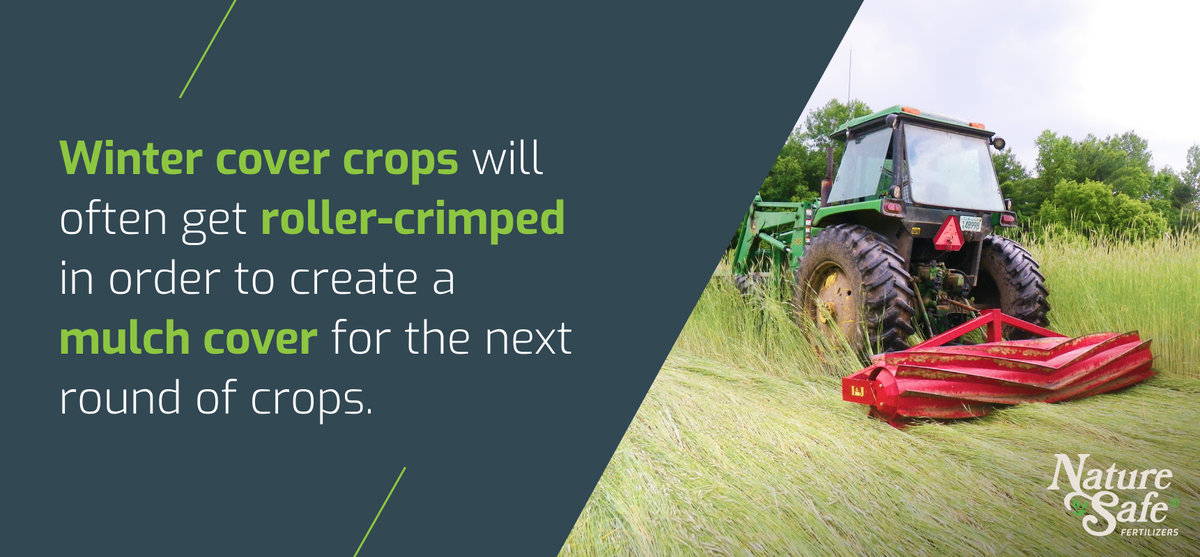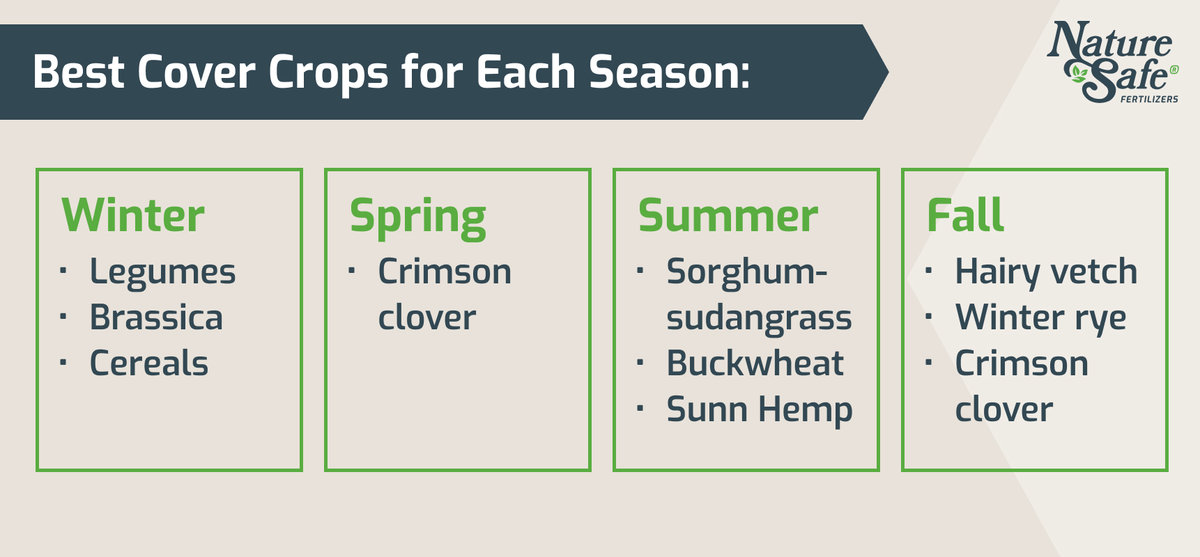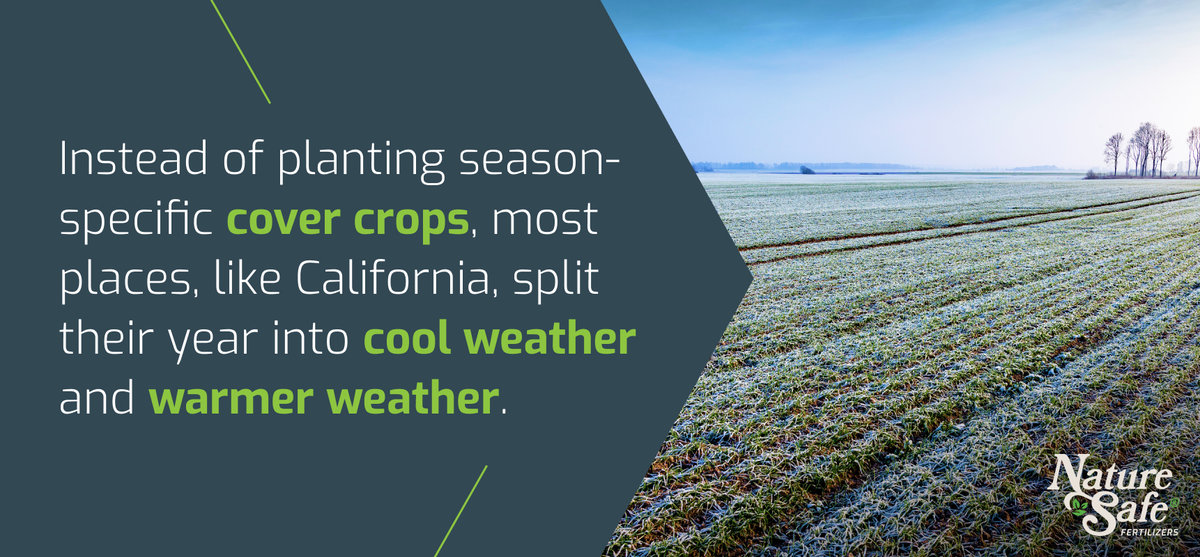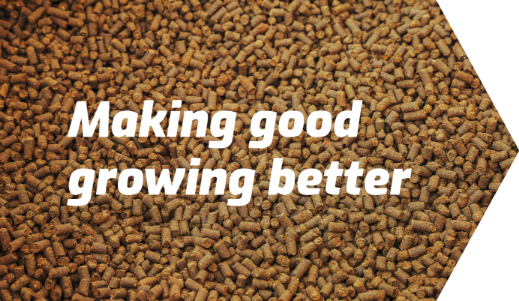
Regenerative agriculture is a philosophy of farming that aims to not only improve the soil health, but enrich the whole environment surrounding the farmland. One very important practice that contributes to the principles of regenerative agriculture is the use of cover crops.
Cover crops are typically planted in between growing seasons of each cash crop. They aren’t meant to yield a bountiful harvest, but they improve soil health in a few different ways. The benefits you can reap from using them really depends on what you plant.
Best Cover Crops for Each Season
Growing happens year round, and you can utilize cover crops year round, as well. Not every crop is suited for every region and hardiness zone. However many of the basics of cover cropping stay the same no matter the time or location.
Best Cover Crops for Winter
The best cover crops for winter are planted in the fall. Typically, farmers will either turn these into green manure come spring or roller-crimp them in order to create a mulch cover for the next round of crops.
Cover cropping in the winter also has the advantage of fixing nitrogen for the winter. Legumes are especially efficient in taking nitrogen from the atmosphere and storing it in their roots. Nitrogen is necessary for the early growing stages of most crops.
Some favorite winter cover crops include:
- Legumes, such as peas, clover, and vetch
- Brassicas
- Cereals

Best Cover Crops for Spring
Spring cover crops are usually planted quickly after the soil thaws. Farmers will typically plant hardy plants that do well in these colder conditions.
Field peas and oats in particular do well in cool temperatures, and they are often planted at the same time.
Crimson clover is another hardy plant, and a favorite cover crop in most climates.
Best Cover Crops for Summer
Summer time means lots of heat, and lots of sun across the United states. While some climates get an abundance of moisture, others are prone to drought conditions. Cover crops that are good at regulating moisture in the soil are ideal for dry regions.
Grasses like sorghum-sudangrass suppress weeds, and can be mowed to add cover to the soil in order to prevent evaporation. This also adds biomass to the soil that microorganisms thrive on.
Buckwheat is another favorite for similar reasons. Sunn Hemp is a legume that also is useful for water retention in drier climates. However, it is an excellent nitrogen-fixing cover crop, and often planted to help with late summer crops like corn.
Best Cover Crops for Fall
Fall cover crops see some overlap with the ideal ones for winter as they need to be hardy plants that can keep nutrients in the soil and withstand cool temperatures.
Hairy vetch is popular all year long, but the University of Maryland recommends planting it in the late summer to establish itself throughout fall and winter. It’s often used as a no-till cover crop since it will sit on the surface of the soil. Even dead, it offers some benefits.
Winter rye and crimson clover are also good to plant in the late summer for fall. They have very hardy, large root systems that can maintain nutrients.

Cover Crops by Region
Each region across the US has unique needs and soil compositions, but they still experience the same fluctuations in the weather. The patterns for which cover crop to plant by season remain consistent. Some simply work better than others depending on geography.
Midwest
The Midwest Cover Crop Council (MCCC) formulated ‘recipes’ of cover crops that are best for switching fields between popular cash crops like soybeans and corn. It works closely with Midwest Universities and their agriculture extensions to study soil and climate on farms to make these recommendations. The MCCC also looks for cover crops that are good for local pollinators.
California
Instead of planting season-specific cover crops, most places, like California, split their year into cool weather and warmer weather. The USDA released a chart covering common cover crops for California for both parts of the year.
For cooler weather, it lists lots of annual grasses that help suppress weeds and prevent soil erosion. For warmer weather, the USDA still recommends grasses, but also broad-leafed legumes to get nitrogen in the soil. Warm weather crops should be planted in the spring.
Southeast
Between the moisture and the frequent loamy fine sand, agronomists in the Southeastern United States have been studying which cover crops work best for erosion control in the region. Crimson clover and sunn hemp are some favorites.

Better Together
Choosing the cover crops you plant based on the time of year and climate can go a long way. Essentially, what you’re doing is fertilizing the soil through biological means. However, this method isn’t perfect. Cover cropping helps a great deal, but there are some nutrients that cannot be supplied efficiently by this method alone. Organic fertilizers can fill in the nutritional gaps that cover crops may leave.
Using the power of natural ingredients, Nature Safe’s organic fertilizers enhance the ability of the cover crops to boost soil health. Remember that organic agriculture does not mean refraining from adding any external nutrients: If the soil is depleted from previous conventional farming practices, cover crops might need the help of fertilizers to be as effective as possible.
Nature Safe is Here to Help
We’ll help answer all of your questions about organic fertilizer, whether for cash or cover crops. We understand that organic crops have specific nutritional requirements, and our OMRI-listed fertilizers get them what they need. Together, we can make good growing better. Call us at 800-743-7413.
